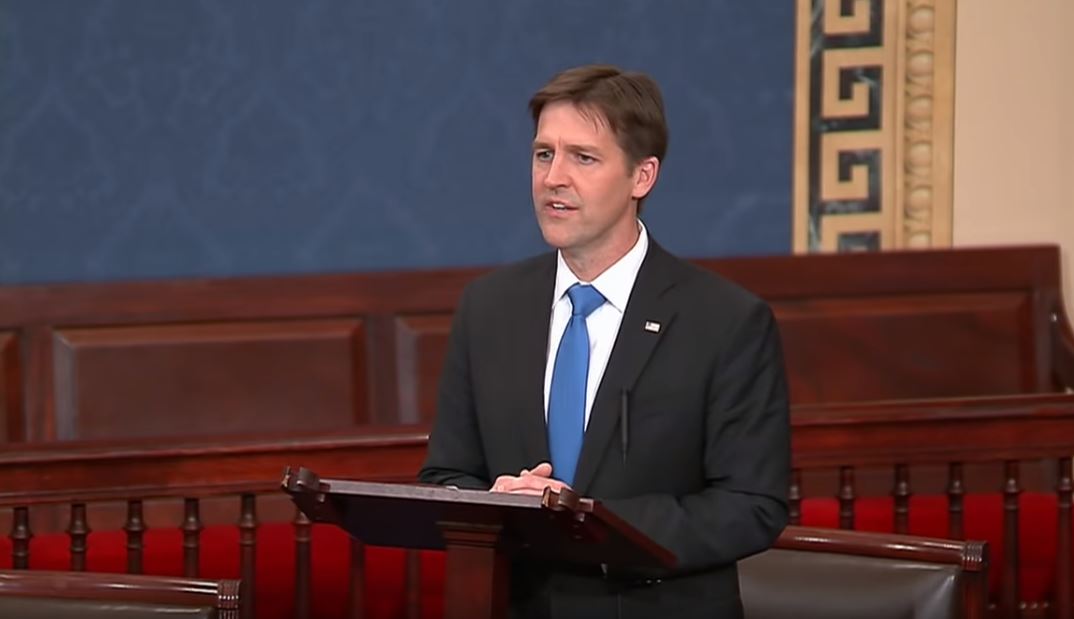
WASHINGTON (BP) — An effort in the U.S. Senate to require health care for a child born alive during an abortion fell victim to a Democratic member’s objection Monday evening (Feb. 4).

Though Murray was the only Democrat to object, many others in a party dedicated to abortion rights likely would have been willing to do so.
Sasse’s effort to gain passage of his bill is not dead. He also has initiated the process to bring his bill to the Senate floor for a roll-call vote.
Sasse announced his dual-track approach Jan. 31, a day after Virginia Gov. Ralph Northam, a Democrat, expressed support for allowing babies to die if they survive abortion. Northam’s comments set off widespread protests from Sasse and many other pro-life advocates who charged the governor with defending infanticide.
Southern Baptist ethicist Russell Moore told Baptist Press, “If a baby is born alive after an attempted abortion, that precious child deserves legal protection and medical care, and the failure of the great deliberative body to say so unanimously is morally reprehensible.
“How seared must a conscience be to stand on the floor of the U.S. Senate and object to protecting living babies?” said Moore, president of the Ethics & Religious Liberty Commission, in written comments. “Children have intrinsic value that is defined not by their power nor by the whim of doctors, but by the image of God each one of them bears.
“I hope the Senate will move soon to take a roll-call vote on this bill in order for Americans to know where their elected officials stand on infanticide.”
Marjorie Dannenfelser, president of the pro-life Susan B. Anthony List, decried Murray’s action, saying in a written release, “The Democratic Party’s agenda of abortion on demand through birth and even beyond is radically out of step with the standards of decency the overwhelming majority of Americans expect from their leaders.”
The Born-Alive Abortion Survivors Protection Act not only says a child who survives an abortion or attempted abortion is a “legal person” deserving protection, but it mandates a health-care provider give the same degree of care offered “any other baby born alive at the same gestational age.” Under the proposal, an infant who survives an abortion must be admitted to a hospital after the initial treatment. A violation of the measure could result in a fine and/or a prison sentence of as many as five years.
In seeking unanimous consent Feb. 4, Sasse told the Senate he was giving all 100 members “an opportunity to condemn infanticide.”
“Frankly, this shouldn’t be hard,” Sasse said from the Senate floor. “We’re not talking about second-trimester abortion; we’re not having some big, complicated discussion about a mother’s reproductive freedom, as important as all those debates are. We’re actually talking about babies that have been born. The only debate on the floor tonight is about infanticide.”
Sasse appealed to Democrats near the close of his speech: “It’s my understanding that some of my Democratic colleagues are prepared to object tonight, and I humbly say that I don’t understand why. I beg you from the bottom of my heart not to do so.
“There are just two sides of the debate on the floor tonight — you’re either for babies or you’re defending infanticide.”
Murray said in immediately objecting, “We have laws against infanticide in this country. This is a gross misinterpretation of the actual language of the bill that is being asked to be considered.”
Sasse said in response, “This debate is about infanticide and infanticide only, and this is a sad day for this body. It shouldn’t be controversial.”
Northam’s controversial remarks came after Del. Kathy Tran, a Democrat, spoke Jan. 28 before a Virginia House of Delegates subcommittee on behalf of her legislation to repeal abortion restrictions. In response to questioning, Tran said her bill would allow an abortion for “mental health” reasons “all the way up to 40 weeks.” Her proposal would permit abortion when the woman’s cervix is dilating and she is preparing to give birth, she said.
In a radio interview Jan. 30, Northam said in commenting on the bill, “If a mother is in labor, I can tell you exactly what would happen. The infant would be delivered. The infant would be kept comfortable. The infant would be resuscitated if that’s what the mother and the family desired, and then a discussion would ensue between the physicians and the mother.”
The Virginia-ignited uproar came a week after New York enacted a law that legalizes abortion until birth for the mother’s “health” — which is not defined and has been interpreted by the U.S. Supreme Court to include essentially any reason — and as other states seek to wipe out limitations on the procedure. At least in part, the effort is based on the concern expressed by abortion rights advocates that two Supreme Court justices nominated by President Trump will help overturn the 1973 Roe v. Wade opinion that legalized the procedure nationwide.
Democrats did not block similar legislation that gained approval in 2002. The Senate passed the Born-Alive Infants Protection Act by unanimous consent, and the House of Representatives approved it by voice vote.
The measure, signed into law by President George W. Bush, clarified a newborn child — “at any stage of development” and fully outside the womb — is a person to be protected under federal law. The legislation especially targeted what was known at the time as live-birth abortion. The method, practiced in at least one hospital in Chicago, resulted in surviving babies being left unattended to die.
The 2002 law does not adequately protect children who survive an abortion, Sasse said in reintroducing his bill in January. His proposal makes specific requirements of health-care providers and calls for penalties not in the 2002 measure.















